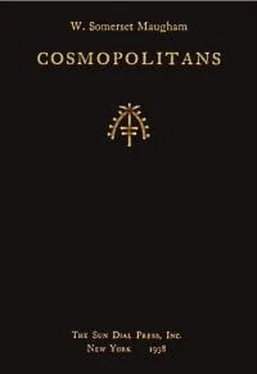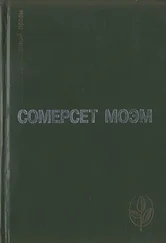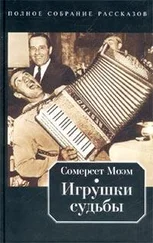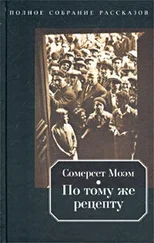Уильям Моэм - Cosmopolitans
Здесь есть возможность читать онлайн «Уильям Моэм - Cosmopolitans» весь текст электронной книги совершенно бесплатно (целиком полную версию без сокращений). В некоторых случаях можно слушать аудио, скачать через торрент в формате fb2 и присутствует краткое содержание. Город: New York, Год выпуска: 1938, Издательство: The Sun Dial Press, INC., Жанр: Классическая проза, short_story, на английском языке. Описание произведения, (предисловие) а так же отзывы посетителей доступны на портале библиотеки ЛибКат.
- Название:Cosmopolitans
- Автор:
- Издательство:The Sun Dial Press, INC.
- Жанр:
- Год:1938
- Город:New York
- ISBN:нет данных
- Рейтинг книги:5 / 5. Голосов: 1
-
Избранное:Добавить в избранное
- Отзывы:
-
Ваша оценка:
- 100
- 1
- 2
- 3
- 4
- 5
Cosmopolitans: краткое содержание, описание и аннотация
Предлагаем к чтению аннотацию, описание, краткое содержание или предисловие (зависит от того, что написал сам автор книги «Cosmopolitans»). Если вы не нашли необходимую информацию о книге — напишите в комментариях, мы постараемся отыскать её.
Cosmopolitans — читать онлайн бесплатно полную книгу (весь текст) целиком
Ниже представлен текст книги, разбитый по страницам. Система сохранения места последней прочитанной страницы, позволяет с удобством читать онлайн бесплатно книгу «Cosmopolitans», без необходимости каждый раз заново искать на чём Вы остановились. Поставьте закладку, и сможете в любой момент перейти на страницу, на которой закончили чтение.
Интервал:
Закладка:
I never met a more interesting man than Mayhew. He was a lawyer in Detroit. He was an able and a successful one. By the time he was thirty-five he had a large and a lucrative practice, he had amassed a competence, and he stood on the threshold of a distinguished career. He had an acute brain, an attractive personality, and uprightness. There was no reason why he should not become, financially or politically, a power in the land. One evening he was sitting in his club with a group of friends and they were perhaps a little the worse (or the better) for liquor. One of them had recently come from Italy and he told them of a house he had seen at Capri, a house on the hill, overlooking the Bay of Naples, with a large and shady garden. He described to them the beauty of the most beautiful island in the Mediterranean.
“It sounds fine,” said Mayhew. “Is that house for sale?”
“Everything is for sale in Italy.”
“Let’s send ’em a cable and make an offer for it.”
“What in heaven’s name would you do with a house in Capri?”
“Live in it,” said Mayhew.
He sent for a cable form, wrote it out, and dispatched it. In a few hours the reply came back. The offer was accepted.
Mayhew was no hypocrite and he made no secret of the fact that he would never have done so wild a thing if he had been sober, but when he was he did not regret it. He was neither an impulsive nor an emotional man, but a very honest and sincere one. He would never have continued from bravado in a course that he had come to the conclusion was unwise. He made up his mind to do cxactly as he had said. He did not care for wealth and he had enough money on which to live in Italy. He thought he could do more with life than spend it on composing the trivial quarrels of unimportant people. He had no definite plan. He merely wanted to get away from a life that had given him all it had to offer. I suppose his friends thought him crazy; some must have done all they could to dissuade him. He arranged his affairs, packed up his furniture and started.
Capri is a gaunt rock of austere outline, bathed in a deep blue sea; but its vineyards, green and smiling, give it a soft and easy grace. It is friendly, remote and debonair. I find it strange that Mayhew should have settled on this lovely island, for I never knew a man more insensible to beauty. I do not know what he sought there: happiness, freedom, or merely leisure; I know what he found. In this place which appeals so extravagantly to the senses he lived a life entirely of the spirit. For the island is rich with historic associations and over it broods always the enigmatic memory of Tiberius the Emperor. From his windows which overlooked the Bay of Naples, with the noble shape of Vesuvius changing in colour with the changing light, Mayhew saw a hundred places that recalled the Romans and the Greeks. The past began to haunt him. All that he saw for the first time, for he had never been abroad before, excited his fancy; and in his soul stirred the creative imagination. He was a man of energy. Presently he made up his mind to write a history. For some time he looked about for a subject, and at last decided on the second century of the Roman Empire. It was little known and it seemed to him to offer problems analogous with those of our own day.
He began to collect books and soon he had an immense library. His legal training had taught him to read quickly. He settled down to work. At first he had been accustomed to foregather in the evening with the painters, writers and such like who met in the little tavern near the piazza, but presently he withdrew himself, for his absorption in his studies became more pressing. He had been accustomed to bathe in that bland sea and to take long walks among the pleasant vineyards, but little by little, grudging the time, he ceased to do so. He worked harder than he had ever worked in Detroit. He would start at noon and work all through the night till the whistle of the steamer that goes every morning from Capri to Naples told him that it was five o’clock and time to go to bed. His subject opened out before him, vaster and more significant, and he imagined a work that would put him for ever beside the great historians of the past. As the years went by he was to be found seldom in the haunts of men. He could be tempted to come out of his house only by a game of chess or the chance of an argument. He loved to set his brain against another’s. He was widely read now, not only in history, but in philosophy and science; and he was a skilful controversialist, quick, logical and incisive. But he had good-humour and kindliness; though he took a very human pleasure in victory, he did not exult in it to your mortification.
When first he came to the island he was a big, brawny fellow, with thick black hair and a black beard, of a powerful physique; but gradually his skin became pale and waxy; he grew thin and frail. It was an odd contradiction in the most logical of men that, though a convinced and impetuous materialist, he despised the body; he looked upon it as a vile instrument which he could force to do the spirit’s bidding. Neither illness nor lassitude prevented him from going on with his work. For fourteen years he toiled unremittingly. He made thousands and thousands of notes. He sorted and classified them. He had his subject at his finger ends, and at last was ready to begin. He sat down to write.
He died.
The body that he, the materialist, had treated so contumeliously took its revenge on him.
That vast accumulation of knowledge is lost for ever. Vain was that ambition, surely not an ignoble one, to set his name beside those of Gibbon and Mommsen. His memory is treasured in the hearts of a few friends, fewer, alas! as the years pass on, and to the world he is unknown in death as he was in life.
And yet to me his life was a success. The pattern is good and complete. He did what he wanted, and he died when his goal was in sight and never knew the bitterness of an end achieved.
German Harry
I WAS IN Thursday Island and I wanted very much to go to New Guinea. Now the only way in which I could do this was by getting a pearling lugger to take me across the Arafura Sea. The pearl fishery at that time was in a bad way and a flock of neat little craft lay anchored in the harbour. I found a skipper with nothing much to do (the journey to Merauke and back could hardly take him less than a month) and with him I made the necessary arrangements. He engaged four Torres Straits islanders as crew (the boat was but nineteen tons) and we ransacked the local store for canned goods. A day or two before I sailed a man who owned a number of pearlers came to me and asked whether on my way I would stop at the island of Trebucket and leave a sack of flour, another of rice, and some magazines for the hermit who lived there.
I pricked up my ears. It appeared that the hermit had lived by himself on this remote and tiny island for thirty years, and when opportunity occurred provisions were sent to him by kindly souls. He said that he was a Dane, but in the Torres Straits he was known as German Harry. His history went back a long way. Thirty years before, he had been an able seaman on a sailing vessel that was wrecked in those treacherous waters. Two boats managed to get away and eventually hit upon the desert island of Trebucket. This is well out of the line of traffic and it was three years before any ship sighted the castaways. Sixteen men had landed on the island, but when at last a schooner, driven from her course by stress of weather, put in for shelter, no more than five were left. When the storm abated the skipper took four of these on board and eventually landed them at Sydney. German Harry refused to go with them. He said that during those three years he had seen such terrible things that he had a horror of his fellow men and wished never to live with them again. He would say no more. He was absolutely fixed in his determination to stay, entirely by himself, in that lonely place. Though now and then opportunity had been given him to leave he had never taken it.
Читать дальшеИнтервал:
Закладка:
Похожие книги на «Cosmopolitans»
Представляем Вашему вниманию похожие книги на «Cosmopolitans» списком для выбора. Мы отобрали схожую по названию и смыслу литературу в надежде предоставить читателям больше вариантов отыскать новые, интересные, ещё непрочитанные произведения.
Обсуждение, отзывы о книге «Cosmopolitans» и просто собственные мнения читателей. Оставьте ваши комментарии, напишите, что Вы думаете о произведении, его смысле или главных героях. Укажите что конкретно понравилось, а что нет, и почему Вы так считаете.










